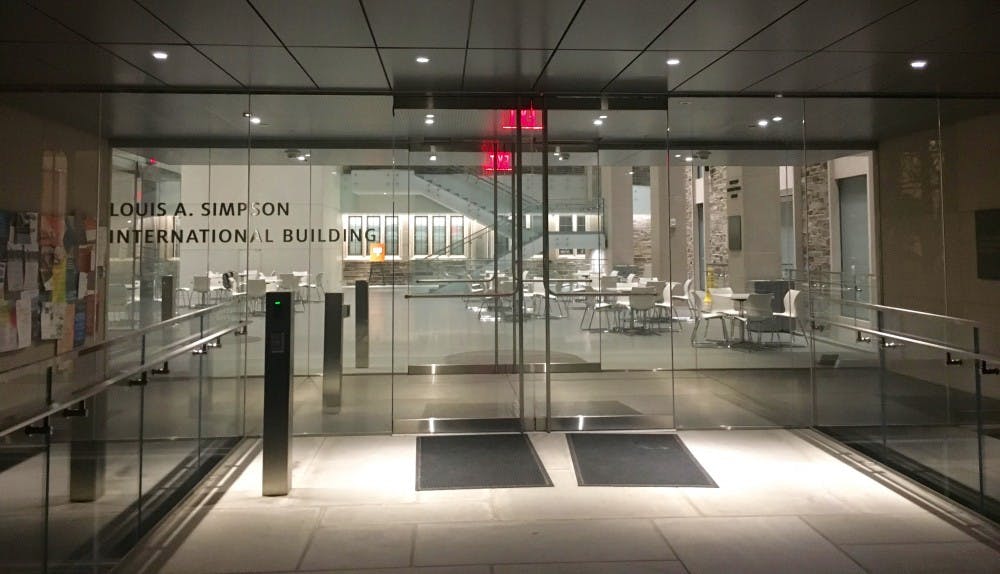The following is a guest contribution and reflects the author’s views alone. For information on how to submit to the Opinion Section, click here.
Since August 2022, one-third of Pakistan has come under water due to rampant flooding, leaving more than 33 million people (of which 16 million are children) displaced. The flooding, caused by “rainfall equivalent to nearly 3 to 5 times the national 30-year average” has created huge inland lakes, turned “villages into islands,” and has left more than 1,500 dead and almost 13,000 injured, according to The New York Times. These numbers are expected to rise.
And yet, this massive humanitarian disaster has elicited barely a shrug on campus. It’s high time that Princetonians started caring about the Global South. This isn’t just major international news, it is something for which those in the Global North bear responsibility.
The devastation does not end with the deaths and injuries. Large swathes of agricultural land and crops have been rendered unusable, causing a food crisis in the country. Official estimates place the loss of livestock at more than 700,000. Being largely an agro-based economy, this portends great disaster for Pakistan.
Furthermore, the country’s infrastructure has faced unimaginable damage. Millions of houses, schools, and hospitals have been washed away, entire road networks submerged, and kilometers of telecommunications lines cut. These damages will cost at least $30 billion to rebuild.
Pakistan’s healthcare system is under extreme stress. Water-borne diseases such as malaria, typhoid, and dengue are on the rise, already having claimed hundreds of lives in flood refugee camps. Further, 650,000 women are expected to give birth in the coming weeks with tarps as the only available surfaces for delivery.
With experts estimating the floodwater will take at least six months to recede, full recovery seems unlikely in the coming future. Given the massive scale of the “human, social and economic loss,” rising food scarcity, and worsening health crises, even those not physically situated in the inundated areas will bear the consequences of the floods.
Reading reports from Pakistan on its own is disheartening enough and feeling acute helplessness and being so far from home certainly does not help. What adds to our hurt is the apathy we see in our fellow Princetonians.

This apathy is disappointing especially when one considers that Princeton’s informal motto is “Princeton in the nation’s service and the service of humanity.” As Aly Rashid ’26, an undergraduate student from Pakistan emphasized, the “humanity” that Princeton’s informal motto refers to includes even those that are “7000 miles away.” Moreover, conversations with our fellow Pakistani students at Princeton about being inside the Orange Bubble have highlighted that we all feel a gap between what is talked about inside the classroom and what is acted upon outside of it. Our courses might feature discussions about international solidarity, climate justice, and finding solutions to various humanitarian crises, but this does not translate into action outside the classroom. We call upon our fellow Princetonians to help bridge the gap between what we say and what we do to contribute positively to the world.
Putting the indifference we see around us in a larger context, we recognize that the lack of awareness, sympathy, interest — whatever you may call it — is, unfortunately, the symptom of larger Western apathy towards the Global South. Media coverage of the floods has been limited in the West, and the little coverage often lacks sensitivity, including unnecessary sensationalization and gross stereotyping that distracts from the issue at hand. Coverage often portrays Pakistan as one of those countries that is always facing a problem of its own making. That’s why Princeton students might think that it’s not our problem, and that “terrible things always happen to places like Pakistan.” What we are witnessing is clearly a climate catastrophe.
Let it be clear: this is not just climate change, it is climate injustice. The floods in Pakistan are not just “natural disasters” but the result of decades of exorbitant levels of carbon emissions by the Global North. According to Sherry Rehman, head of Pakistan’s Ministry of Climate Change, “The G20 alone accounts for 75% of global emissions, many times more than those of the club of climate-vulnerable countries, which includes Pakistan, who emit less than 1% of greenhouse gasses.” Yet Pakistan is the one paying the price of the “developed” world.
This is why donating towards flood relief will count as more than just a monetary contribution. It will serve as a symbolically powerful gesture, as members of the Princeton University community utilize our privilege to bring about reparatory justice. Using language that goes beyond aid not only recognizes the duty of individual Princetonians, but also centers historical injustices that contributed to the conditions leading to the flood.

We must each play our part in undoing the climate injustice that has survived for far too long. The plight of the Global South has long been ignored, and the onus is rarely placed on the Global North. We as Princeton students have the obligation to become aware, care, raise awareness about climate injustice, and — most urgently — donate generously to flood victims in Pakistan.
This upcoming week we will be fundraising at Frist Campus Center and donating to relief organizations such as Edhi Foundation, Al Khidmat, and Mahwari Justice Organization. We urge the Princeton community to help out as much as you can, as any donation goes a long way. It is high time that our campus starts caring, for we are all responsible.
Shireen Waraich is a junior concentrating in history and Ayeda Hamed is a senior concentrating in politics, both from Pakistan. They can be reached at swaraich@princeton.edu and ahamed@princeton.edu, respectively. Waraich is a copy staffer for The Daily Princetonian.








